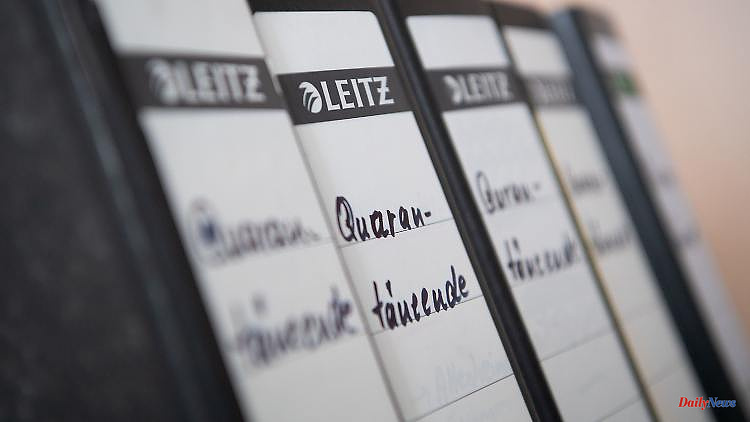In Austria, people infected with corona no longer have to be isolated unless they feel sick. Is that a role model for Germany? Minister of Health Lauterbach rejects this, the countries led by the Union want to at least have it checked by the RKI. But the federal government rejects that as well.
According to Bavaria, the federal government does not want the Robert Koch Institute (RKI) to reassess the situation in the debate about a possible end to the obligation to isolate people infected with corona. The Federal Ministry of Health has rejected an application from the Union countries that the RKI should give a well-founded opinion on the obligation to isolate, said Bavarian Health Minister Klaus Holetschek. The CSU politician criticized: "I think the argument that there are no new findings is flimsy."
"In the light of current developments, especially in Austria, we need a compass. So what exactly speaks against a current assessment by the experts at the RKI?" asked Holetschek. The fact that Austria has abolished the obligation to isolate leaves question marks for many citizens. "You are right to expect a professional assessment from us."
With the RKI, Germany has an excellent institution and the head of the RKI, Lothar Wieler, has proven to be a clever and level-headed person in the past pandemic years, said Holetschek. "The RKI has the necessary expertise for a serious assessment of whether it still makes sense for infected people to be obligated to go into isolation. Politicians should use the expertise of the RKI."
A clear decision was desirable, especially with regard to the staff in medical and nursing facilities. "There the staff is absent almost everywhere in large numbers. One thing is clear: during the pandemic we have seen again and again how important good and timely communication is," said Holetschek.
At present, people suffering from corona in Germany have to isolate themselves at least five days after the positive test result, even without symptoms of the disease, because they could be contagious. In view of the resulting staff shortages, there have been repeated calls in recent weeks for the isolation requirement to be lifted, for example from the head of the National Association of Statutory Health Insurance Physicians, Andreas Gassen. Federal Health Minister Karl Lauterbach has so far rejected this.
SPD leader Saskia Esken warned against suspending the obligation to isolate. This would expose entire workforces to the calculable risk of becoming infected at work, she told the editorial network Germany. A symptom-free infection does not mean that the infected person is not contagious. "In my opinion, it would be wrong to give up the obligation to isolate those who do not get sick or only get mildly ill," said Esken.












